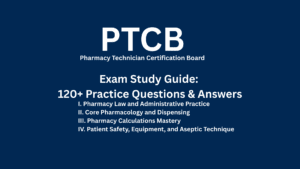
How to Build Effective Study Habits: A Practical Guide for Online Learners
Studying when you’re in high school is one thing, but studying while also working full-time is an entirely different challenge. For many students, it can feel overwhelming, lonely, or unstructured.
If you’re also struggling to retain what you just read, you’re not alone. The good news? Effective study habits can be learned. And once they’re in place, they can completely transform your learning experience.
This guide walks you through proven methods to study smarter, not harder.
Why Study Habits Matter More Than You Think
Study habits aren’t just about academics. They boost your productivity and your ability to follow through on goals. When you’re learning, especially online, good study habits are important, as they help you:
- Retain information better
- Stay motivated over time
- Avoid last-minute cramming and stress
- Balance school with life and work
And according to research, the way you study matters more than how long you study. Active, spaced-out, and goal-driven techniques outperform long, unfocused sessions every time.
What Makes a Study Habit Effective?
Now, when it comes to what makes a study habit effective, there’s no clear answer. This is because each individual has different needs and requires a different approach. With that said, the most effective study habits share a few things in common:
- Consistency: You study at a regular time and place.
- Purpose: Each session has a specific goal.
- Engagement: You’re actively interacting with the material, not passively reading.
When you build study routines around these ideas, you’re setting yourself up for success.
7 Practical Study Habits That Actually Work
Here are time-tested study habits used by successful students, backed by cognitive science and real-world results:
1. Create a Dedicated Study Space
Set up a clean, quiet, and comfortable place where your brain knows it’s time to focus. Avoid distractions like your phone or noisy environments.
Tip: If you can’t find a quiet spot, use noise-canceling headphones and ambient or instrumental music.
2. Use the Pomodoro Technique
The Pomodoro technique has been established as one of the most effective ways to boost productivity, and it is highly recommended that you incorporate it into your study habits.
How to do it? Study in 25-minute focused sessions, followed by a 5-minute break. After four sessions, take a longer 15–30-minute break. This helps maintain energy and focus without burnout.
3. Set Clear Goals for Each Study Session
It has been proven that you’ll only be able to achieve your goal either by willpower or by a clear way.
Therefore, instead of saying “I’m going to study today,” say “I’ll review chapters 3–4 and complete one practice quiz.” Clear goals give you direction and make it easier to measure progress.
4. Review Material Using Active Recall
Rather than re-reading notes, quiz yourself. Close your book and try to write down or say everything you remember. Then go back and fill in what you missed.
5. Space Out Your Reviews
Instead of cramming everything in one study session, review material over several days or even weeks. This is called spaced repetition, and it’s proven to boost long-term memory.
6. Mix Subjects During Study (Interleaving)
Studying two different topics in one session forces your brain to switch gears, which improves understanding and flexibility.
Tip: Only take this approach if you are comfortable with one subject and can retain learned topics.
7. Reflect and Adjust Weekly
Reflecting on your progress is essential to long-term success. At the end of each week, take just 10 minutes to ask yourself:
- What went well?
- Where did I lose focus?
- What should I change next week?
- Reflection helps you improve and stay motivated.
How to Build Study Habits Step-by-Step
If you’re just getting started, follow this simple routine to build momentum:
- Pick a time: Choose the time of day when you’re most alert (morning, afternoon, or evening).
- Start small: Begin with 25–30 minutes per session. Don’t overwhelm yourself.
- Be consistent: Study at the same time and place every day, even if just for 15 minutes.
- Track your sessions: Use a planner, checklist, or study app to stay accountable.
- Celebrate progress: Every time you complete a week of study sessions, reward yourself with something simple, like a treat.
Building habits takes time. Research shows it can take 2–3 months for habits to fully stick. Stay patient with yourself.
Additional Tips to Build Great Study Habits
- Use visual aids: Charts, flashcards, and mind maps make abstract ideas easier to remember.
- Teach someone else: Explaining concepts aloud, especially to others, can solidify your understanding of a topic. Plus, your friends can learn something along the way.
- Turn off notifications: Use apps like Forest or Focus Keeper to avoid distractions. If you do not want to install an app, simply put your phone on silent mode.
- Stay organized: Keep your digital and physical study materials tidy and easy to access.
- Take care of your body: Sleep, exercise, and nutrition all impact how well you retain information.
Final Words
When it comes to developing effective study habits, you don’t need monk-like focus; all you need is the right approach that works for you. Whether you’re aiming to finish a course, pass a certification, or simply feel less stressed while studying, your habits will make or break your success.
Start small. Stay consistent.
Need additional help with studying? Feel free to reach out to the CCI Training Center’s Career Services.
Program Offered
- Pharmacy Technician Training
- Online Medical Assistant
- Medical Billing and Coding Specialist Program
- Cloud Computing Technician Training
- Computer Network Technician
- Business and Accounting
- Radiology Technician Training
- Medical Assistant Program
- Computer Support Technician
- Cybersecurity Program
- Virtual Assistant Training

This article is written by
Share this article

How to Build Effective Study Habits: A Practical Guide for Online Learners
Studying when you’re in high school is one thing, but studying while also working full-time is an entirely different challenge. For many students, it can feel overwhelming, lonely, or unstructured. If you’re also struggling to retain what you just read, you’re not alone. The good news? Effective study habits can be learned. And once they’re in place, they can completely transform your learning experience. This guide walks you through proven methods to study smarter, not harder.Why Study Habits Matter More Than You Think
Study habits aren’t just about academics. They boost your productivity and your ability to follow through on goals. When you’re learning, especially online, good study habits are important, as they help you:- Retain information better
- Stay motivated over time
- Avoid last-minute cramming and stress
- Balance school with life and work
What Makes a Study Habit Effective?
Now, when it comes to what makes a study habit effective, there’s no clear answer. This is because each individual has different needs and requires a different approach. With that said, the most effective study habits share a few things in common:- Consistency: You study at a regular time and place.
- Purpose: Each session has a specific goal.
- Engagement: You’re actively interacting with the material, not passively reading.
7 Practical Study Habits That Actually Work
Here are time-tested study habits used by successful students, backed by cognitive science and real-world results:1. Create a Dedicated Study Space
Set up a clean, quiet, and comfortable place where your brain knows it’s time to focus. Avoid distractions like your phone or noisy environments. Tip: If you can’t find a quiet spot, use noise-canceling headphones and ambient or instrumental music.2. Use the Pomodoro Technique
The Pomodoro technique has been established as one of the most effective ways to boost productivity, and it is highly recommended that you incorporate it into your study habits. How to do it? Study in 25-minute focused sessions, followed by a 5-minute break. After four sessions, take a longer 15–30-minute break. This helps maintain energy and focus without burnout.3. Set Clear Goals for Each Study Session
It has been proven that you’ll only be able to achieve your goal either by willpower or by a clear way. Therefore, instead of saying “I’m going to study today,” say “I’ll review chapters 3–4 and complete one practice quiz.” Clear goals give you direction and make it easier to measure progress.4. Review Material Using Active Recall
Rather than re-reading notes, quiz yourself. Close your book and try to write down or say everything you remember. Then go back and fill in what you missed.5. Space Out Your Reviews
Instead of cramming everything in one study session, review material over several days or even weeks. This is called spaced repetition, and it’s proven to boost long-term memory.6. Mix Subjects During Study (Interleaving)
Studying two different topics in one session forces your brain to switch gears, which improves understanding and flexibility. Tip: Only take this approach if you are comfortable with one subject and can retain learned topics.7. Reflect and Adjust Weekly
Reflecting on your progress is essential to long-term success. At the end of each week, take just 10 minutes to ask yourself:- What went well?
- Where did I lose focus?
- What should I change next week?
- Reflection helps you improve and stay motivated.
How to Build Study Habits Step-by-Step
If you’re just getting started, follow this simple routine to build momentum:- Pick a time: Choose the time of day when you’re most alert (morning, afternoon, or evening).
- Start small: Begin with 25–30 minutes per session. Don’t overwhelm yourself.
- Be consistent: Study at the same time and place every day, even if just for 15 minutes.
- Track your sessions: Use a planner, checklist, or study app to stay accountable.
- Celebrate progress: Every time you complete a week of study sessions, reward yourself with something simple, like a treat.
Additional Tips to Build Great Study Habits
- Use visual aids: Charts, flashcards, and mind maps make abstract ideas easier to remember.
- Teach someone else: Explaining concepts aloud, especially to others, can solidify your understanding of a topic. Plus, your friends can learn something along the way.
- Turn off notifications: Use apps like Forest or Focus Keeper to avoid distractions. If you do not want to install an app, simply put your phone on silent mode.
- Stay organized: Keep your digital and physical study materials tidy and easy to access.
- Take care of your body: Sleep, exercise, and nutrition all impact how well you retain information.
Final Words
When it comes to developing effective study habits, you don’t need monk-like focus; all you need is the right approach that works for you. Whether you’re aiming to finish a course, pass a certification, or simply feel less stressed while studying, your habits will make or break your success. Start small. Stay consistent. Need additional help with studying? Feel free to reach out to the CCI Training Center’s Career Services.Program Offered
- Pharmacy Technician Training
- Online Medical Assistant
- Medical Billing and Coding Specialist Program
- Cloud Computing Technician Training
- Computer Network Technician
- Business and Accounting
- Radiology Technician Training
- Medical Assistant Program
- Computer Support Technician
- Cybersecurity Program
- Virtual Assistant Training

This article is written by
Share this article
Program Offered
- Pharmacy Technician Training
- Online Medical Assistant
- Medical Billing and Coding Specialist Program
- Cloud Computing Technician Training
- Computer Network Technician
- Business and Accounting
- Radiology Technician Training
- Medical Assistant Program
- Computer Support Technician
- Cybersecurity Program
- Virtual Assistant Training

This article is written by
Share this article
Frequently Asked Questions FAQ's
How long should I study each day?
Start with 25–30 minutes a day and build up. Quality matters more than quantity.
Is it better to study at night or in the morning?
Study when you feel most focused. Mornings work for some, evenings for others. Consistency is key.
What’s the most effective study method?
Active recall and spaced repetition are two of the most research-backed techniques.
Can I study effectively while working full-time?
Yes! Use short, focused sessions during lunch breaks, early mornings, or weekends. Even 20 minutes a day adds up.
Related Articles







CCI Training Center Proudly Completes
41 Years in Career Training Services










